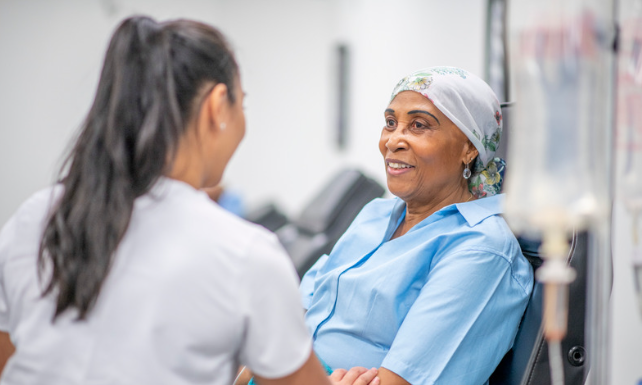A cancer diagnosis is life changing—not only does it affect the body, but it also impacts the mind and the very fabric of one’s social life. Modern cancer care is increasingly recognizing that the emotional, social, and behavioral challenges of a cancer diagnosis can be just as critical as the physical challenges. This is where psycho-oncology comes in.
Defining Psycho-Oncology
Psycho-oncology (also known as psychosocial or psychiatric oncology) is an interdisciplinary field that examines the psychological, social, and behavioral aspects of the cancer experience. It addresses how patients, their families, and even caregivers cope with the stress, anxiety, and depression that are often a part of the cancer experience. By integrating mental health care into cancer treatment, professionals aim to improve overall quality of life and help patients manage the emotional burden of their illness.
From diagnosis and treatment to survivorship and end-of-life care, each phase of the cancer experience comes with its own set of unique psychosocial concerns. As a result, psycho-oncology has become an integral part of quality cancer treatment throughout the cancer journey.
Why is Psycho-Oncology Important?
A cancer diagnosis can trigger a range of intense emotions, including fear, uncertainty, and profound grief. Research shows that many patients experience significant psychosocial distress, which can impact quality of life, interfere with treatment adherence, and even affect recovery outcomes. For example:
- Emotional Distress: Patients may struggle with anxiety, depression, and feelings of isolation. Psycho-oncology offers supportive counseling and evidence-based therapies to help manage these reactions.
- Treatment Adherence: When emotional needs go unmet, patients might be less likely to follow treatment recommendations. Integrating psychological care can boost motivation and help patients stick to their prescribed plans.
- Quality of Life: Interventions such as cognitive-behavioral therapy, mindfulness, and support groups not only alleviate distress but also empower patients to lead fuller, more active lives during treatment.
- Worsening Psychiatric Illness: Cancer and cancer treatments can worsen symptoms for patients with existing psychiatric illness – such major depression or bipolar illness. Psycho-oncology teams are uniquely trained to care for these conditions during the cancer journey.
By addressing these areas, psycho-oncology helps bridge the gap between physical treatment and emotional healing, leading to more holistic cancer care.
Key Components of Psycho-Oncology
Psycho-oncology isn’t just about treating mental health symptoms—it’s about supporting the whole person through a challenging journey. Here are some of the key focus areas:
- Emotional Support: Interventions help patients deal with depression, anxiety, and the trauma of a cancer diagnosis. Therapy sessions, whether one-on-one or in groups, allow patients to process their emotions in a safe space.
- Behavioral Interventions: Techniques such as mindfulness-based stress reduction, cognitive-behavioral therapy, and coping skills training help patients manage treatment side effects (like “chemo brain”) and maintain a sense of normalcy.
- Social and Family Support: Cancer affects more than just the individual; families and caregivers often experience stress as well. Psycho-oncology provides guidance on improving communication, building supportive networks, and addressing interpersonal challenges.
- Enhancing Quality of Life: Through practical strategies—from stress management to lifestyle counseling—patients learn to navigate the day-to-day challenges of cancer treatment while preserving their overall well-being.
- Treating Neuro-Psychiatric Symptoms: At times cancer or even cancer treatment can affect the brain and lead to serious psychiatric symptoms, including depression, cognitive changes, or even agitation. Through in-depth understanding of these interactions, psycho-oncology practitioners can treat these symptoms and restore a patient’s mental functioning.
How Does Psycho-Oncology Work?
At its core, psycho-oncology is delivered by a multidisciplinary team of healthcare professionals that may include psychologists, psychiatrists, social workers, and even oncologists who collaborate closely. This integrated approach ensures that the physical and psychological aspects of cancer care are addressed concurrently.
For instance, oncologists often work with psycho-oncology specialists to assess a patient’s emotional state, help interpret distress signals and determine when further mental health support is needed. This collaborative model means that as patients receive treatments such as chemotherapy or radiation, their mental health is monitored and supported every step of the way.
The Benefits of Integrating Psycho-Oncology into Cancer Care
Integrating psycho-oncology services can result in a multitude of benefits:
- Improved Emotional Well-Being: Patients gain access to therapies that reduce anxiety, depression, and fear, empowering them to face treatment with greater resilience.
- Better Communication: Enhanced dialogue between patients, their families, and healthcare providers leads to more personalized care and a better understanding of treatment options.
- Enhanced Coping Strategies: Patients learn practical techniques to manage stress and maintain a positive outlook, which can translate into improved treatment adherence and outcomes.
- Overall Quality of Life: By addressing the mental and emotional aspects of cancer, psycho-oncology helps patients lead more balanced and fulfilling lives even amidst a challenging diagnosis.
In Conclusion
Psycho-oncology represents a significant evolution in how we care for cancer patients. By addressing the full spectrum of the cancer experience—from physical symptoms to emotional upheaval—this field underscores the truth that healing is not solely a matter of treating cells, but also of nurturing the mind and spirit. For those facing cancer, integrating psycho-oncology into treatment plans offers a pathway to not only survive but to thrive despite the challenges.
If you or a loved one are navigating a cancer diagnosis and finding the emotional toll overwhelming, consider reaching out to your healthcare provider about psycho-oncology services. A holistic approach to care can make a world of difference on your journey to healing.
Questions
If you’d like to speak with someone about your behavioral health needs, Forge Health is here to help. Contact us at (888) 224-7312 or visit Forge Health to take the first step toward whole-person care.
Let’s work together to support recovery, resilience, and hope for those navigating the challenges of cancer and behavioral health.
